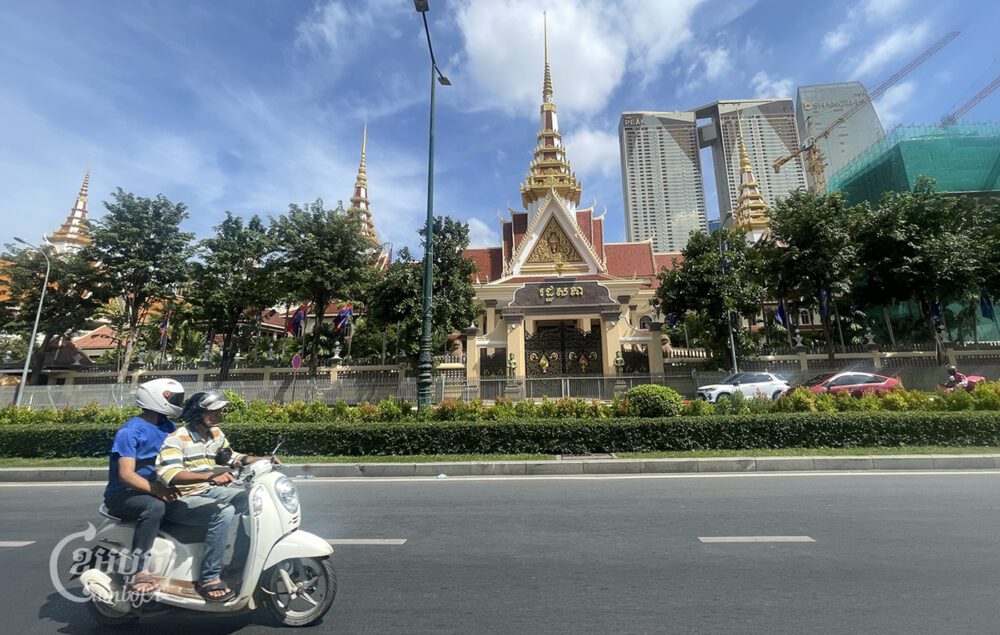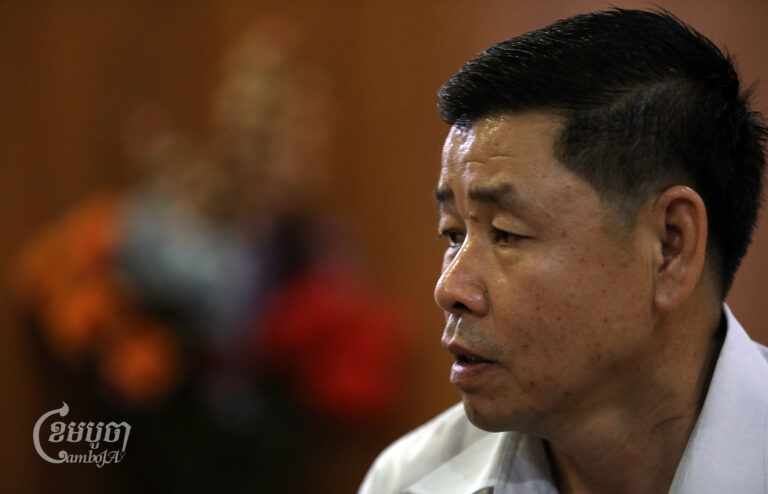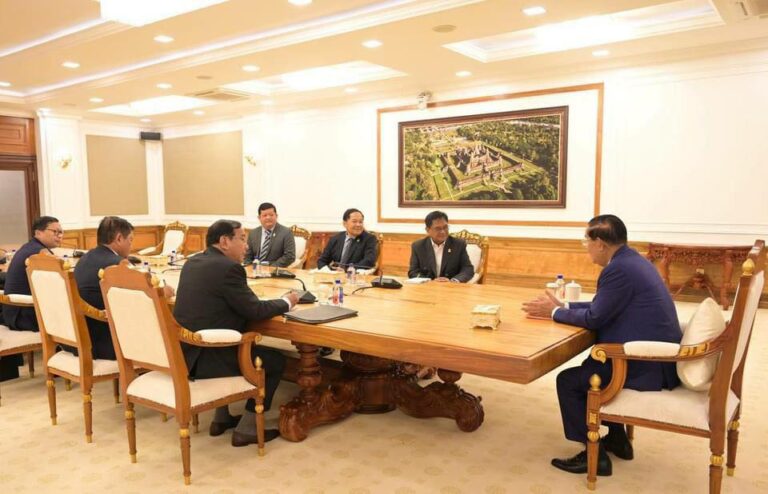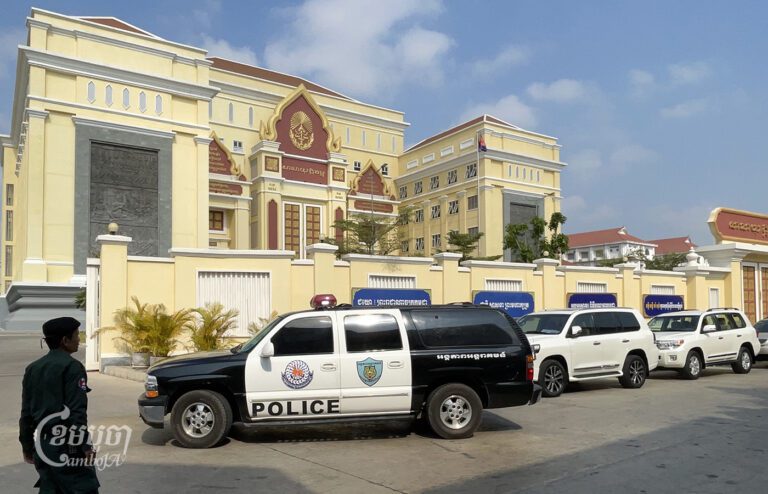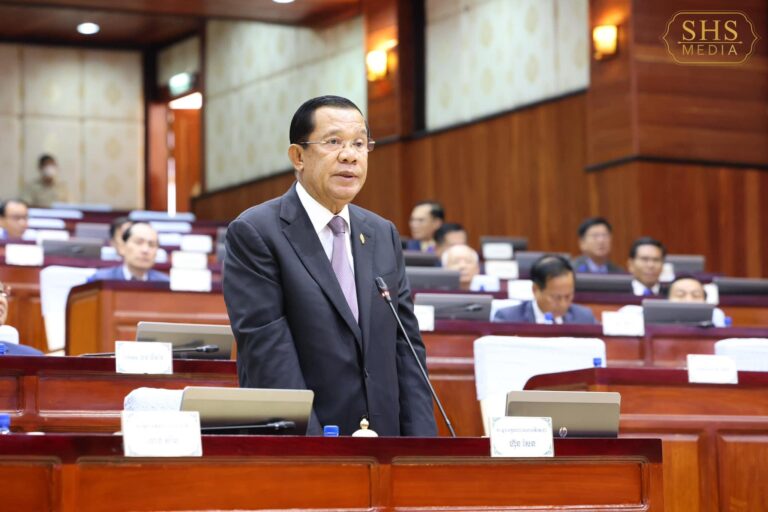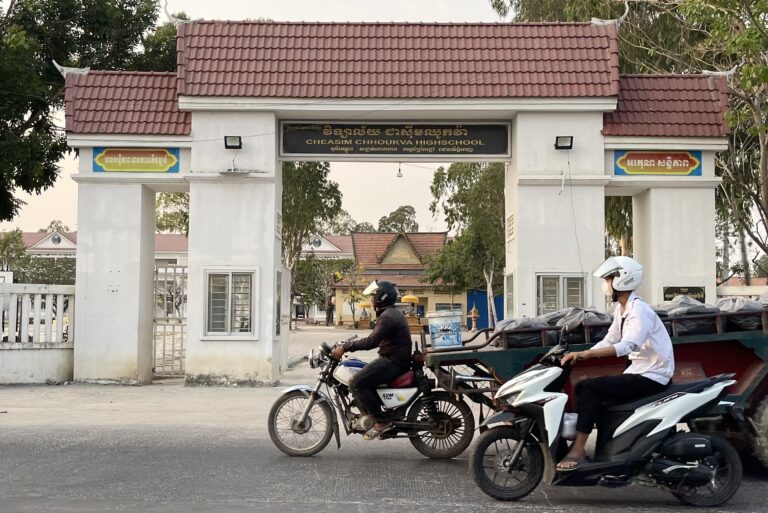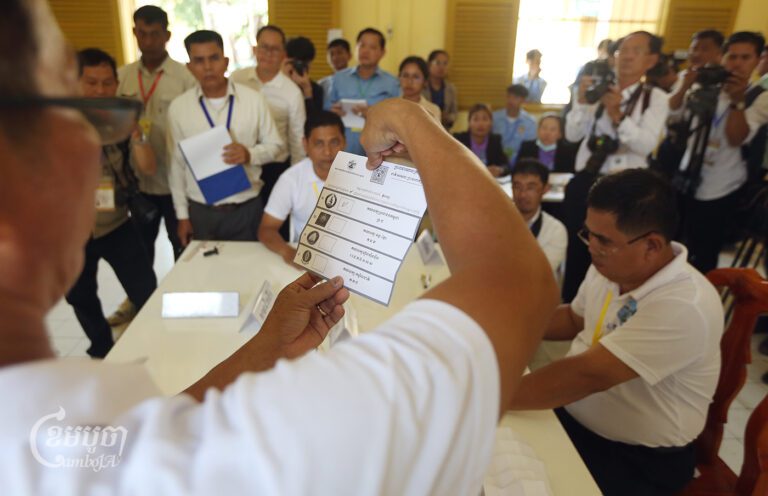An assessment published this month by the anti-corruption watchdog Transparency International Cambodia found a decline in parliamentary oversight over the last five years. The publication attributes the change to the dissolution of the main opposition party in 2017, weak oversight provisions under Cambodian law, limited transparency and the government’s lack of engagement with civil society groups.
The assessment was part of a multi-country report produced by Transparency International (TI) that includes key findings from 10 countries. The Cambodia assessment evaluates parliamentary oversight during the last legislative term from 2018-2023, finding no notable instances of “effective parliamentary oversight” in the country during this period.
One-party dominance of the National Assembly “coupled with Prime Minister Hun Sen’s tight grip within the party itself has posed a remarkable challenge in ensuring accountability among members of the parliament,” the evaluation states.
TI Cambodia Executive Director Pech Pisey said it’s important for a democratic society to have opposition parties in parliament to ensure oversight of power. Without these parties, he said significant national issues will be ignored.
“We have to ensure that in every election, which is the time that people decide on leaders, we create an atmosphere where non-government parties can compete equally, freely and fairly to ensure people can choose the party for their representatives in parliament,” he said.
Lawmakers should be citizens’ representatives, but from his perspective, these days they represent the party.
According to the assessment, Cambodian law offers limited oversight powers to members of parliament [MP], such as the right to ask questions of government officials and requirements for the Prime Minister and officials to respond. But legal provisions do not specify if MPs must follow up on oversight activities, nor do they stipulate consequences for government officials who do not respond to questions.
Cambodia also has few legislative measures to evaluate the effectiveness and consequences of laws that have already been passed.
The assessment points out that, while there are some legal protections of MPs under Cambodian law, they do not ensure immunity from politically motivated prosecution. Minority quotas for committees, the right to establish a committee to scrutinize the executive branch, or the right to add a dissenting report to a committee’s findings are not clearly outlined or ensured.
Concerning the national budget, discussions in the National Assembly are “characterised by superficiality as the budget remains widely unquestioned by MPs,” according to the assessment. Budget documents are not often made available to the public, or are presented in a way that is difficult to understand. The evaluation adds that it’s unclear if the National Assembly can legally amend the budget without the consent of the Minister of Economy and Finance, or if debt arrangements require approval from MPs.
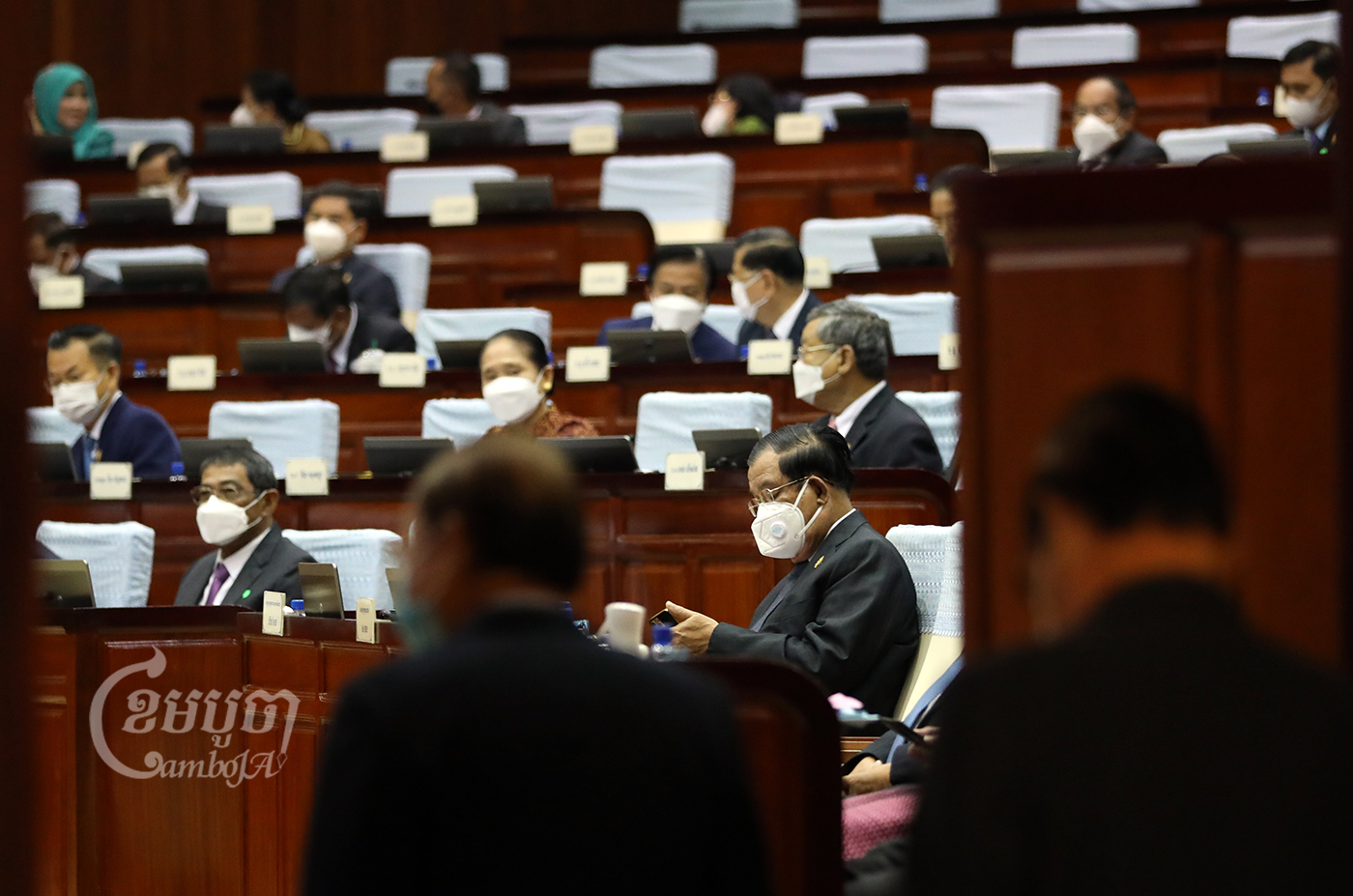
Without a viable opposition party, criticism of the ruling party has largely been left to civil society organizations. But the Parliament only engages with these groups in a limited capacity, the publication states, and generally interacts with civil society groups focused on development projects or organizations that don’t often challenge the government.
The assessment notes that human rights and democracy-focused organizations that are considered confrontational by the ruling party receive limited engagement from the government.
“The government cannot have transparency and accountability because there are no checks and balances on power, especially in the absence of an opposition party,” said legal scholar Vorn Chanlout. “Since the dissolution of the CNRP, what the government has done contradicts the constitution.”
If the government represented the will of the people, the country could improve and people could live in peace, he said. Currently, lawmakers do not represent the people and do not allow for minority voices to check, question and evaluate legislation, according to Chanlout.
CPP spokesperson Sok Eysan said that TI Cambodia’s findings were not in line with reality.
“This report is politically biased and inconsistent. Therefore, the assessment of [Cambodia having] a very weak parliament or a one-party parliament is not transparent,” he said. “Both the National Assembly and the Senate fulfill their roles as defined in the constitution and the bylaws.”
Lawmakers know how to solve the problems of the masses at the proper time and oversee the enforcement of the law, he said. If TI Cambodia’s findings were accurate, he stated, the National Assembly would not be able to fulfill its responsibilities or get the support of the people and the ruling party.
Kimsour Pirith, spokesperson for the Candlelight Party, said he agrees with the findings of the assessment because there are no opposition parties to represent minority voices or to monitor the government’s actions.
“The dissolution [of the CNRP] affected the voice of opposition in the National Assembly, the lives of the people, and was an injustice to their basic rights,” he said. “[The absence of political opposition] makes it difficult for the institution [parliament] to maintain its role and values and become an active institution in a liberal, multi-party democracy.”
The July election, marking the end of the sixth legislative term, was criticized by the US, France, the UK, EU, Germany, Japan, and Australia. UN analysts said the ban on the Candlelight Party and the harassment of opponents by the ruling elites had “distorted” the electoral process in Cambodia.
The royalist Funcinpec party won five National Assembly seats, with the remaining 120 going to the ruling CPP, ending Cambodia’s single-party parliament. But political analyst Em Sovannra said that the presence of Funcinpec does not ensure checks and balances, despite being preferable to the previous one-party legislature.
“Even though Funcinpec has five seats, they still cannot do anything [regarding oversight] because there is no single outstanding person in this party. So this mandate is more difficult,” he said.
Funcipec’s spokesperson Nhoeurn Raden told CamboJA News that Funcipec has clear policies and strategies for the 7th legislative mandate in order to make the voices of the people heard in parliament.
“Even though the Funcinpec Party only has five seats in parliament, and we have a hard time debating, with the five seats offered by the people we will try to debate more in parliament, especially in the commissions,” he said, noting that Funcinpec has members in four of the 10 parliamentary commissions. “All laws and all issues are discussed vigorously.”
National Assembly spokesperson Leng Peng Long did not respond to a request for comment.
Additional reporting by Leila Goldstein.


